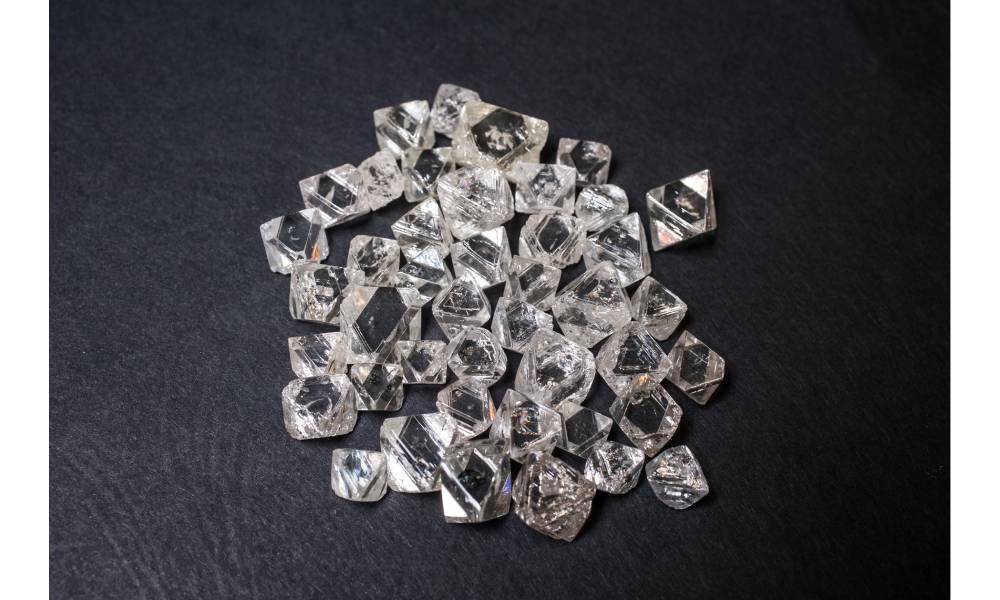The United States is reassessing the strictest aspects of a proposed Group of Seven (G7) ban on Russian diamonds, following objections from African nations, Indian gem processors, and New York jewellers, according to seven sources cited by Reuters.
The sanctions, agreed upon in December and including a European Union-wide ban, represent one of the industry’s most significant disruptions in decades.
Two sources familiar with the discussions indicated to Reuters that the US had distanced itself from G7 working groups on the stringent controls, with one describing the US presence as “there but not engaging”.
The US State Department declined to comment.
A senior Biden administration official stated that Washington had not altered its stance and would continue collaborating with the G7. “We need to balance hurting Russia with ensuring implementation is feasible,” said the official, who spoke on condition of anonymity, as reported by Reuters.
The G7 sanctions aim to cut off another revenue stream for the Kremlin’s war effort in Ukraine. Although Russian state-run miner Alrosa reported $3.5 billion in 2023 diamond revenues, this is a small fraction of Moscow’s earnings from oil and gas.
Since March, importers to G7 countries must certify that diamonds do not originate from Russia, the world’s leading producer of rough diamonds. Sanctions on direct imports of Russian gems began in January, according to Reuters.
Starting September, the EU will require diamonds of 0.5 carat and above to pass through Antwerp, Belgium, for traceability certification using blockchain technology. Sources said G7 nations had agreed on Antwerp as the initial hub, with more to follow.
However, three sources noted that the US had cooled on enforcing traceability, causing discussions to stall. The Biden administration official clarified to Reuters that the commitment to implementing a traceability mechanism by 1st September applied to the EU, not the US.
“We must consider the concerns of African partners, Indian and UAE partners, and ensure it’s workable for the US industry,” said the official. “We’re still engaged but couldn’t commit to having this in place by September 1st.”
In February, the presidents of Angola, Botswana, and Namibia wrote to G7 leaders, arguing that a predetermined entry point for the G7 market would be unfair and harm revenues. These countries produce 30% of the world’s diamonds, Reuters reported.
Italy, holding the G7 presidency, declined to comment on the US position.
Any softening of the ban risks creating loopholes, allowing Russian diamonds to enter markets in New York, London, and Tokyo. This concern was highlighted when Belgian authorities seized suspected Russian diamonds worth millions in February, according to Reuters.
Sanctions advocates argue that a robust traceability mechanism is essential and that without full US participation, the ban would be ineffective. They attribute some industry pushback to fears of greater market transparency.
A Belgian official stressed the importance of closing loopholes firmly.
A previous US ban on Russian diamonds excluded stones polished elsewhere, allowing those processed in India and traded in hubs like Dubai to reach the US market, Reuters noted.
The G7 ban followed months of negotiations among Western capitals. Diamond miners like De Beers, Indian cutters, and jewellery retailers have strongly opposed the ban, citing increased bureaucracy and costs.
De Beers supports a ban but suggests that diamond-producing countries should certify origin at the source. “The likelihood of Russian diamonds entering the legitimate supply chain increases the further you move from the source,” the company said to Reuters.
Virginia Drosos, CEO of Signet, the world’s largest diamond jewellery retailer, urged the US government to oppose the “G7 Belgian solution” in a letter seen by Reuters.
Belgium has launched a pilot tracing scheme in Antwerp with around 20 diamond buyers, including French luxury groups LVMH and Kering, and Switzerland’s Richemont, participating.
An LVMH spokesperson confirmed Tiffany & Co’s participation. Kering and Richemont did not comment, as reported by Reuters.
Belgian Prime Minister Alexander De Croo stated in March that he was open to additional certification hubs if they met Antwerp’s standards, acknowledging that changes take time to resolve issues.

